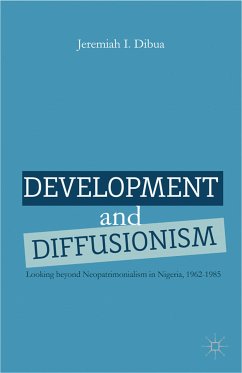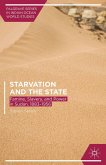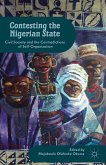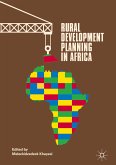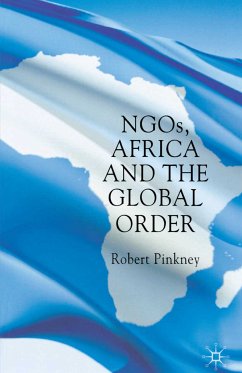Dieser Download kann aus rechtlichen Gründen nur mit Rechnungsadresse in A, B, BG, CY, CZ, D, DK, EW, E, FIN, F, GR, HR, H, IRL, I, LT, L, LR, M, NL, PL, P, R, S, SLO, SK ausgeliefert werden.
'Revisionist in its approach and erudition, the book shifts the locus of inquiry into Africa's development challenges from neopatrimonialism to Euro-American hegemony and globalism within the context of neo-colonialism and the Cold War. It is a significant contribution to the discourses on development policies and implementation strategies, their attendant hiccups, and the role of the state and external forces in the process.' - Apollos Okwuchi Nwauwa, Professor of History & Director, Africana Studies Program, Bowling Green State University, USA
'Jeremiah I. Dibua's Development and Diffusionism eloquently adopts a historical perspective and case study approach, in exploring the influence of Eurocentric diffusionism on development policies in Nigeria. Using elaborate theoretical and empirical evidence, he effectively challenges the received wisdom that the Weberian-influenced neopatrimonial paradigm tries to foster through their attribution of the failures of development policies in Nigeria to only internal factors.' - Onaiwu W. Ogbomo, Professor of Africana Studies & History, Western Michigan University, USA

